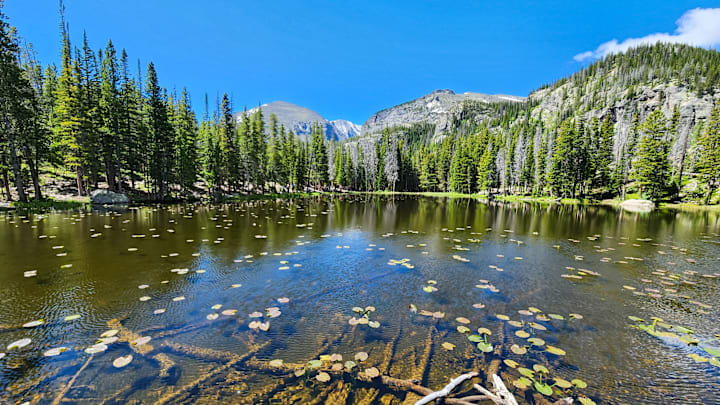You’re taking a summer stroll along a nice trail when you come across a body of water. “That’s a beautiful lake,” you think to yourself. Or ... wait. Is that a beautiful pond? What's the difference between the two, anyway?
Guess what? There is no official scientific difference between a lake and a pond [PDF]. In fact, the only real criterion to categorize something as a lake or pond is that the area in question must be a standing or slow-moving body of water surrounded by land.
Attempting to get more specific from there raises some semantic problems. The Geographic Names Information System (GNIS), a U.S. government-sponsored database that attempts to standardize the naming of geographical features, defines a lake as a “natural body of inland water,” but also includes geographical terms that could also be defined as natural bodies of inland water, including pond, backwater, lagoon, oxbow, and tarn.
Naming conventions between lakes and ponds are ultimately arbitrary as well, but the generally accepted consensus for the two involves size. Bodies of water that are dubbed lakes seem to constitute larger areas, while ponds seem to be smaller. Limnologists—or scientists who study freshwater, including lakes and ponds—tend to unofficially differentiate between the two for various reasons, most of them involving the unofficial size distinction.
According to many limnologists, a water body that has rooted plants growing in it should be classified as a pond because it is shallow—and small—enough to allow sunlight to filter to the bottom, allowing photosynthesis. In this case, a lake would be too wide and deep for sunlight to reach its bottom, and instead is unofficially categorized by a small shoreline surrounded by vegetation.
Other informal distinctions involve temperature. Lakes typically have stratified hot and cold temperatures between layers of their water in summer months, while ponds usually have consistent temperatures throughout.
Have you got a Big Question you’d like us to answer? If so, let us know by emailing us at bigquestions@mentalfloss.com.
Discover More Facts About Geography:
A version of this story was published in 2014; it has been updated for 2024.
